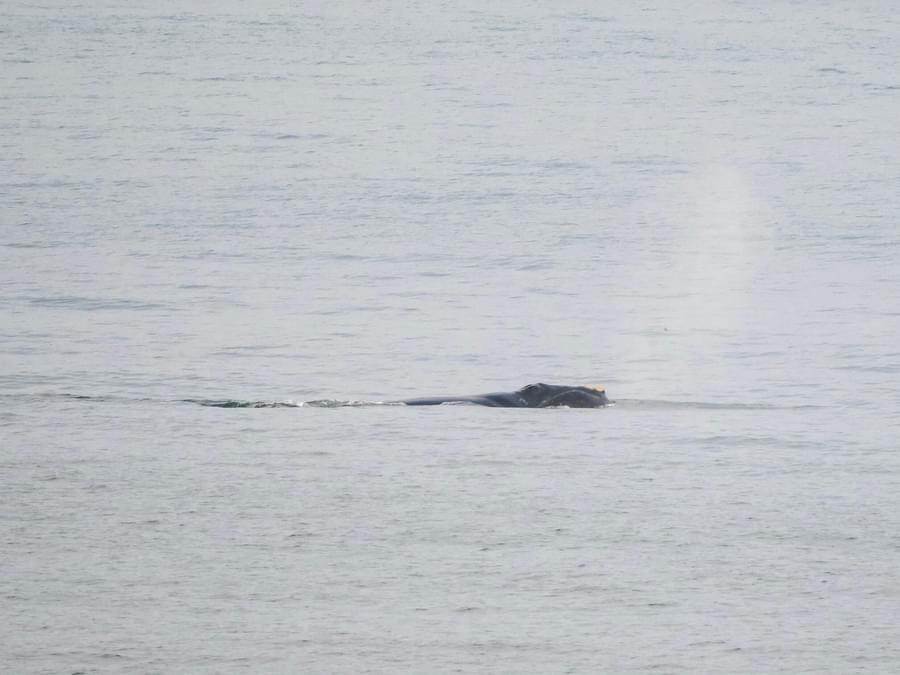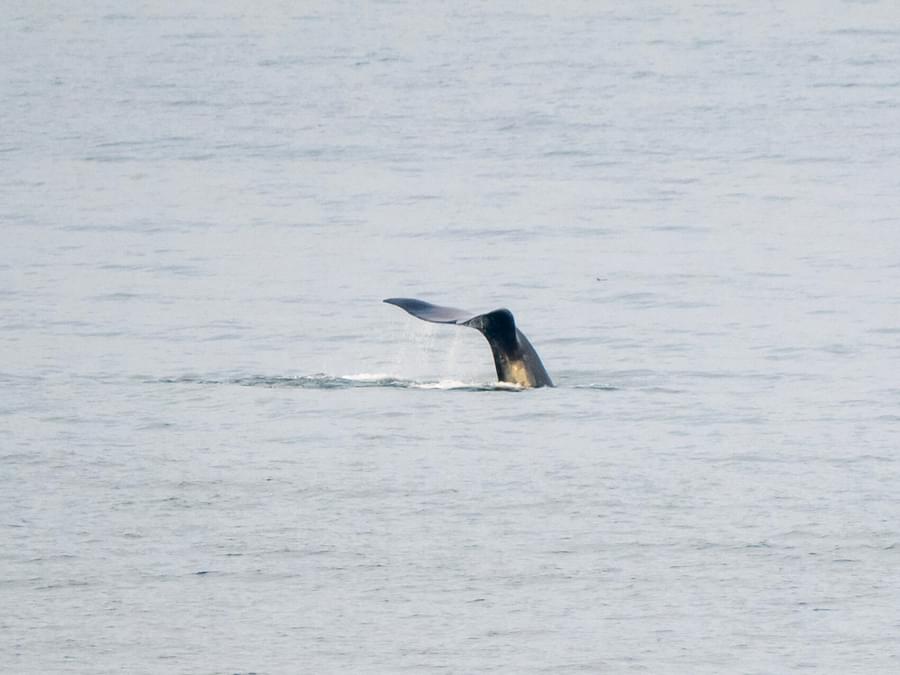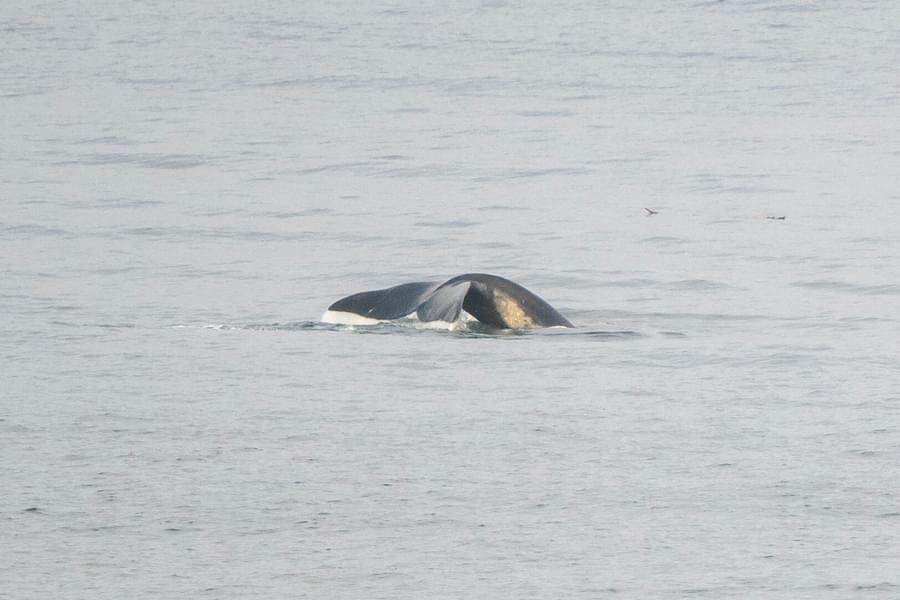The message sent to US marine authorities from the bridge of Saga’s Spirit of Discovery on Wednesday morning was short and to the point: “Please be advised, the vessel sighted a North Atlantic right whale".
Even for seasoned mariners, a sighting like this is a blue moon rarity, and for ORCA in our twenty years of undertaking marine surveys, we’ve only seen one other.
Sailing across the Bay of Fundy into Eastport, Maine, USA, ORCA Marine Mammal Surveyor Paul first spotted a blow on the starboard side with a guest spotting the second blow.
The distinctive head and back rose up twice, followed by a show of its fluke as it dived. Great cheering erupted as the ORCA team and guests on board realised what they’d just seen and it was echoed at ORCA HQ as we received the news.
But perhaps even more amazing is that this individual whale was one that could be recognised. In response to the bridge, Fisheries and Oceans Canada came back with this exciting news;
“Depending on scarring and callosity patterns it can be very easy or somewhat challenging to identify whales from far away pictures, depending on the uniqueness of the markers we can observe. But after consulting with one of my colleagues, we believe it is a 12 year old female whale #4191, who has not yet had any of her own calves. Her mother is whale #3130. She hasn’t been known to frequent the Gulf of St Lawrence, but has been sighted on and off since her birth year (2011) in the Bay of Fundy. Each year 10-15 whales are chosen to be named, but this whale has not yet received a unique name to identify her by.”

Right whales were the target species for whalers owing to their large size and docile nature and as a result they were hunted to the precipice of extinction. It’s been calculated that by 1935, there were as few as 100 individuals remaining.
Even now, 40 years after the ban on whaling, there are around 370 individuals left making them one of the world’s rarest and most endangered whales. As a result, huge efforts have been undertaken by the North American marine authorities to better protect and understand this enigmatic species. This challenge is not made easier by the fact that the North Atlantic right whale home territory extends from the Labrador Sea in the north to Florida and Georgia in the south.
Their migratory routes, feeding, calving and breeding grounds are strung out along an East Coast North American marine superhighway which is crossed by some of the greatest volumes of shipping and fishing vessels anywhere in the world. Between 1970 and 2006, 37% of all Northern Right whale mortalities occurred due to ship strikes. In terms of numbers, that’s around 3 a year. A swathe of measures have been introduced, including the narrowing of shipping lanes and the imposition of speed restrictions. In addition to the hazards of shipping, entanglement in fishing gear is estimated to have occurred to an incredible 85% of the population during individual lifetimes. This has led to the imposition of restrictions on gillnet fishing during months of migration. Concerns are now being addressed around the Gulf of Maine lobster fishery and the impact of their fishing gear on the whales.
Nigel Blanks, the CEO of Saga Cruises said; “Sightings like this highlight the real value of our partnership with ORCA, and illustrate how our ships provide such a fantastic platform to research and identify whales and dolphins in more diverse places than ever. We take great pride in being able to play a part in marine conservation efforts and we know this is a key issue for our cruise guests.”
The information collected is vital in helping to understand and protect these whales - especially at this time of year. Other sighting platforms tend to become more sporadic with many official seasonal survey programs already wrapping up for 2023.
Lucy Babey, ORCA’s Director of Programmes said; “Our growing sightings database increasingly contributes to local, national, regional and international conservation efforts and insights. And in many instances, as is the case with #4191, this intel is gathered by ORCA’s volunteer Marine Mammal Surveyors. This is citizen science at its very best – with shipping companies working with conservation charities like ORCA and drawing on the skills of expert volunteers to safeguard highly endangered whales.”


